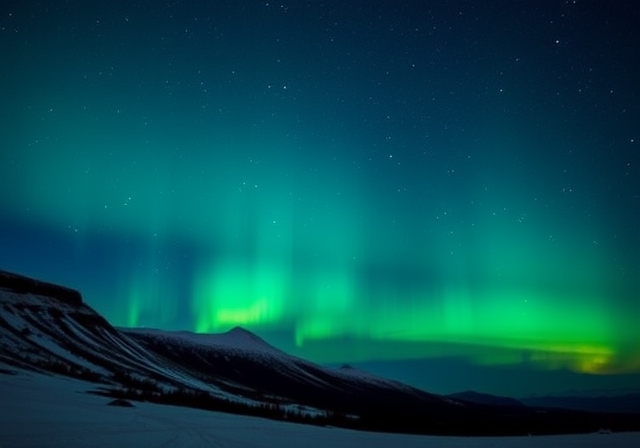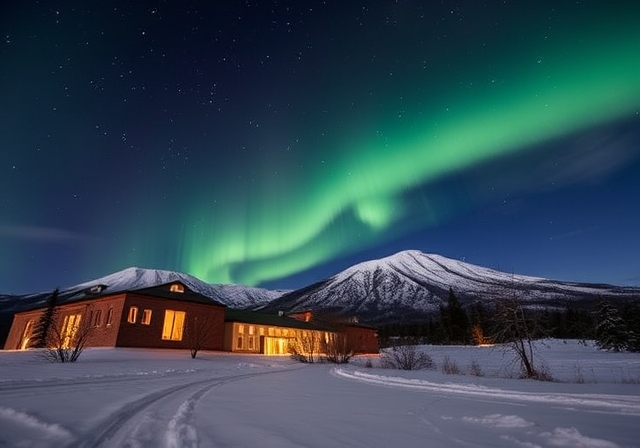What Time Is Best for Aurora Tonight? A Comprehensive Guide to Catching the Northern Lights
What Time Is Best for Aurora Tonight?. Are you dreaming of witnessing the jaw-dropping spectacle of the aurora borealis, commonly known as the Northern Lights? If so, you’re not alone. The ethereal dance of green, purple, and pink lights across the night sky has captivated individuals and cultures for centuries. But aside from selecting the right location and season, one of the most crucial factors in experiencing this natural phenomenon is timing. In this in-depth guide, we will explore the best times to catch the aurora tonight and what conditions to look for so you can maximize your chances of a memorable viewing experience.
Thank you for reading this post, don't forget to subscribe!Understanding the Aurora Borealis
Before diving into the optimal viewing times, let’s briefly understand what the aurora borealis is. The phenomenon occurs when charged particles from the sun collide with Earth’s magnetic field and atmosphere. These collisions create the stunning lights that ripple across the sky, primarily in regions near the Arctic Circle, including parts of Norway, Sweden, Finland, Canada, and Alaska.
While the display can be mesmerizing, it is largely influenced by solar activity, geographic location, and atmospheric conditions.
Key Factors Influencing Aurora Sightings
- Solar Activity: The sun goes through an approximately 11-year cycle of solar maximum and minimum. During periods of solar maximum, the chances of auroras are significantly increased. Keep an eye on solar activity forecasts to identify potential aurora displays.
- Location: Being in the right place is half the battle. Areas closer to the magnetic poles offer better viewing opportunities. Popular locations include Tromsø, Norway; Fairbanks, Alaska; and Yellowknife, Canada.
- Time of Year: The best time to see the aurora is during winter months when nights are long and dark. Generally, late autumn to early spring (September to March) is considered ideal due to longer nights and clearer skies.
- Weather Conditions: Clear skies with minimal light pollution are essential for optimal viewing. Mountain passes, open fields away from city lights, and elevated areas often provide the best vantage points.
Ideal Times to Watch the Aurora Borealis
1. Timing During the Night
While auroras can appear at any time during the night, certain times are statistically more conducive to sightings:
- Between 10 PM and 2 AM: Studies and anecdotal evidence suggest that the peak hours for aurora activity typically fall between 10 PM and 2 AM. This is when the solar winds are most likely to interact with Earth’s magnetic field.
- Midnight Magic: Many seasoned aurora-watchers report that midnight often brings the most spectacular displays. This is likely due to the alignment of the magnetic field and solar wind activities.
2. New Moon Phase
Dark skies are crucial for visibility. A new moon provides the least light interference, allowing for the best conditions to appreciate the vibrant colors of the aurora. Check the lunar calendar before planning your trip to maximize your chances of seeing the lights in all their glory.
3. Solar Activity
Monitoring real-time solar activity can be a game-changer for aurora chasers. Websites and apps that track solar storms and geomagnetic activity provide data on the potential for aurora sightings:
- KP Index: The K-index measures geomagnetic activity on a scale of 0 (no activity) to 9 (extreme activity). For aurora visibility, a KP index of 4 or higher usually means that the lights are visible. Keep track of the KP index forecast closer to your viewing night.
- Aurora Forecasts: Various websites offer daily and hourly aurora forecasts based on solar activity. Some notable resources include the NOAA Space Weather Prediction Center and the Aurora Service.
4. Local Sunrise and Sunset
The hours of sunset and sunrise play a critical role in when you can view the aurora. You’ll generally want to plan your viewing after sunset and until dawn.
5. Seasonal Variations
Different seasons can also affect the odds of seeing the aurora:
- Autumn (September – November): The start of the aurora season can offer excellent opportunities, especially around the autumn equinox when solar activity tends to peak.
- Winter (December – February): With the longest nights and often clearer weather conditions, winter is the prime time for aurora hunting. Many visitors flock to popular destinations during this period.
- Spring (March – April): Spring can also be a good time to catch the lights as solar activity ramps up again with the spring equinox.
Tips for Aurora Viewing
Once you’ve determined the best time to observe the aurora borealis, here are some extra tips to enhance your experience:
1. Stay Warm
Temperatures in aurora-viewing locations can drop drastically, especially during winter. Dress in layers, and bring hand warmers and blankets for added comfort.
2. Bring Photography Equipment
If you plan to capture the aurora, a good camera capable of long exposures is beneficial. A tripod is a must-have to keep your shots steady.
3. Patience is Key
Aurora displays can be unpredictable. Sometimes they appear for just minutes, while other nights reward you with hours of stunning views. Bring snacks and enjoy the occasion while waiting.
4. Utilize Apps and Tools
Download apps that offer real-time alerts for aurora activity, such as “My Aurora Forecast” or “Aurora Alerts.” These tools can help you keep tabs on the best viewing conditions.
5. Engage with Local Guides
Consider joining a guided aurora tour led by local experts. They often have insights into the best viewing spots and can help maximize your chances of experiencing this breathtaking sight.

Final Thoughts
The question “What time is best for aurora tonight?” doesn’t have a straightforward answer, but by understanding the various contributing factors, you can significantly increase your chances of seeing the Northern Lights. Combining optimal time frames, weather conditions, locations, and solar activity can lead to a once-in-a-lifetime experience.
Whether you’re a seasoned traveler or a first-time adventurer, the aurora borealis promises an unparalleled connection with nature that can leave you in awe. So pack your warm clothing, check your local aurora forecasts, and prepare for a magical night under the bright, dancing sky. Happy aurora hunting.
Stay curious, and may the lights be in your favor tonight.


